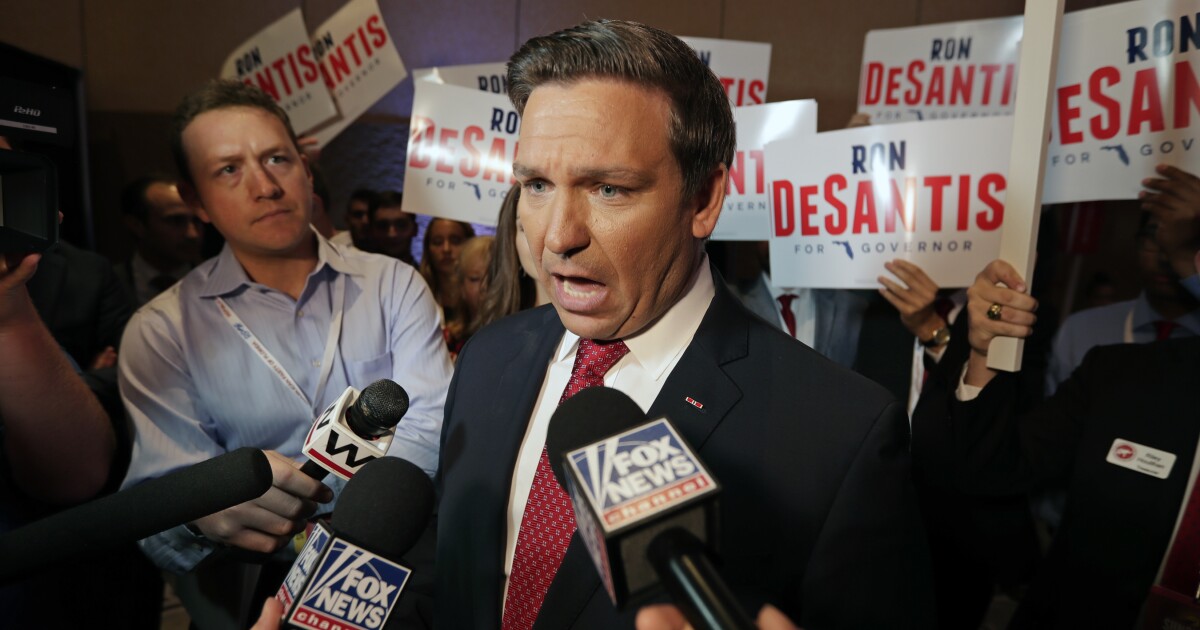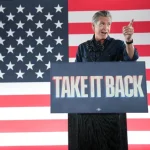

The 2016 Republican primary debates provided a stage for political fireworks, and their 2024 counterparts have the potential to be as fiery.
But with former President Donald Trump, the race’s front-runner, threatening not to attend as his rivals protest the Republican National Committee‘s required loyalty pledge, the debates may not be as helpful as they have been in the past to candidates hoping to break out from the crowded field or to voters seeking to make more informed decisions.
NINE TAKEAWAYS FROM FBI DIRECTOR WRAY’S TESTIMONY
Debates typically present opportunities and challenges, according to University of Iowa politics professor Timothy Hagle, though they tend to shape primaries when candidates make “huge mistakes.”
“It’s hard to really make gains in a debate-type of situation, although if you’re really good and it turns out that you’re not well known and all of a sudden come up with some really good, eloquent points that you’ll get a little bit more attention,” Hagle told the Washington Examiner. “But the thing is often that if you do something and really screw up, that that’s going to hurt you a lot. So whether it happens to be forgetting something or saying something that’s wrong, or whatever it happens to be, that maybe that will make a difference.”
When former New Jersey Gov. Chris Christie announced his campaign last month, much was made of his possible impact on the debates, citing his interaction with Sen. Marco Rubio (R-FL) in 2016 when he criticized the senator for his “30-second memorized speeches” as an example of how Christie could confront Trump. Rubio contests the categorization.
“So Christie’s itching, of course, to get on the stage with Trump to maybe do the same thing to him, but we’ll see how that goes if he qualifies and if Trump actually decides to participate, which he may not,” Hagle said. “The problem with all this is is Trump is just — it’s a different sort of scheme with him. He’s not a traditional politician.”
Christie announced this week he had 40,000 unique donors, with at least 200 each in 20 different states or territories, meeting one of the RNC’s three criteria for candidates to take part in its first debate in Milwaukee on Aug. 23.
Christie, who launched his campaign last month, was joined by Sen. Tim Scott (R-SC) in announcing this week he had 53,00 donors, raising $6.1 million during the second quarter of 2023 for $21 million cash on hand since embarking on his bid in May. Christie has not shared his fundraising numbers before Saturday’s disclosure deadline for the quarter ending June 30.
Other candidates who have satisfied the RNC’s debate donor criterion include Trump, Gov. Ron DeSantis (R-FL), former South Carolina Gov. Nikki Haley, and biotechnology entrepreneur Vivek Ramaswamy. Former Vice President Mike Pence remains the only second-tier candidate who has not yet announced he has met the donor threshold, despite launching his campaign a day after Christie. Those candidates and others, such as former Arkansas Gov. Asa Hutchinson, now have until Aug. 21 to notch at least 1% support in three qualifying national polls, or two national surveys and one state one. They additionally have to pledge that they will be loyal to the eventual nominee.
Morning Consult released the first qualifying poll this week, finding Trump has 56% support to DeSantis’s 17%, Ramaswamy’s 8%, Pence’s 7%, Christie, Haley, and Scott’s 3%, and Hutchinson’s 1%. The poll captured the relatively static nature of the race, indicating DeSantis will likely be the No. 1 target at the debates if Trump does not take part. But the DeSantis campaign is adamant the governor, who told reporters this week that Trump “needs to step up” and participate because nobody is “entitled” to the nomination, is prepared.
“Trump couldn’t even beat Joe Biden in a debate. No wonder he’s afraid of Ron DeSantis,” DeSantis campaign spokesman Andrew Romeo said.
The RNC did not respond to inquiries regarding whether Christie would be permitted to take part in the debates if he declines to sign the loyalty pledge. Hutchinson, too, has bristled at the idea.
Meanwhile, also-ran candidates, including Miami Mayor Francis Suarez, are resorting to novel fundraising strategies to boost their donor numbers and qualify for the debates. Suarez’s super PAC, SOS America, announced Thursday that donors to his campaign would have the chance to win free college tuition for a year, though critics question whether the tactic is legal in Florida.
CLICK HERE TO READ MORE FROM THE WASHINGTON EXAMINER
SOS America’s strategy comes after Gov. Doug Burgum (R-ND), another candidate and former entrepreneur who is estimated to be worth $1 billion after selling his Great Plains Software company to Microsoft in 2001, announced the first 50,000 donors to his campaign would receive a $20 Visa or Mastercard gift card. Pitched as relief from so-called Bidenflation, critics, again, contend the gift card tactic is akin to an illegal straw donor scheme.
Businessman and author Perry Johnson started the gimmick fundraising trend last month by selling $1 T-Shirts, including ones printed with “I stand with Tucker” after TV personality Tucker Carlson was fired from Fox News.





